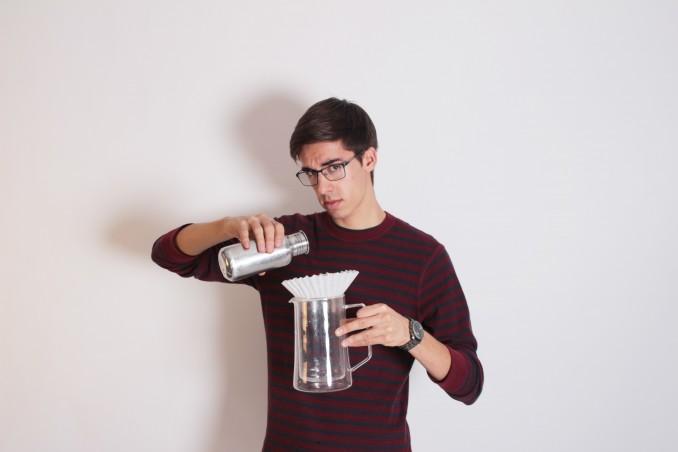By Syed Razvi
Ryerson researcher and instructor Ali Kamel H. Al jibouri can make wastewater usable in under three minutes.
Inhabitants of areas that are affected by non-biodegradable pollutants in their water might finally be able to make full use of the resource, which is tainted during manufacturing.
Wastewater naturally degrades by itself but many of the pollutants in it cannot be degraded naturally, Al jibouri said. They might exist for thousands of years.
Al jibouri’s method of recycling industrial wastewater might be able to help degrade pollutants in areas such as the Alberta oil sands, where settling ponds are used to store wastewater. That wastewater currently takes 13 years to degrade to half its original amount.
Al jibouri’s method uses ozone to degrade industrial non-biodegradable pollutants in wastewater.
The technology Al jibouri uses to purify water is not new, he said.
“The new part is that it has become more efficient compared to others as many researchers in the past succeeded but the operating costs were very high,” said Al jibouri, who holds two master’s degrees and a Ph.D. in chemical engineering.
“The production of ozone is the expensive part in the process,” said Al jibouri.
“We are able to control the quantity of ozone treating the pollutant so only the ozone needed is used,” he said.
Al jibouri said that previous purification processes discharged an excess amount of ozone into the environment. By reducing this amount, he reduced the cost of the process, and the impact it has on the environment.
Al jibouri’s team is trying to contact professionals in different industries including oil, pharmaceutical, chemical and pulp and paper, promote their method. They have succeeded in purifying wastewater in a lab, but need to test their approach at the industrial level. Al jibouri said doing that will require funding.












Leave a Reply